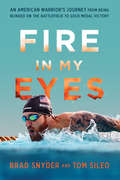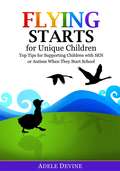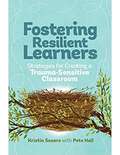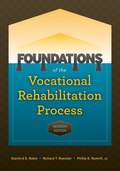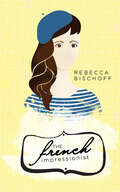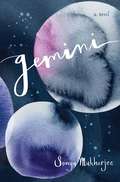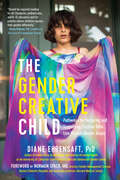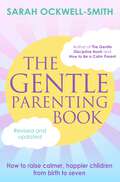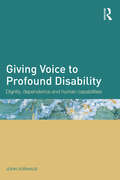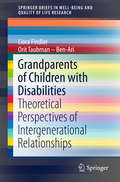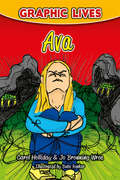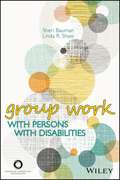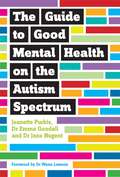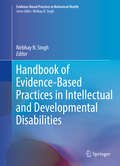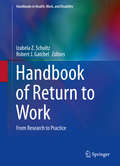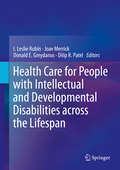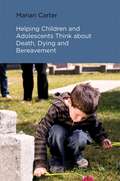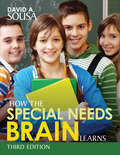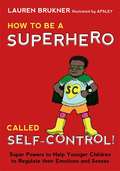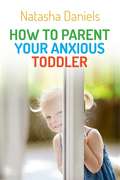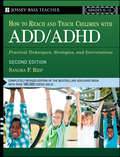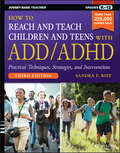- Table View
- List View
Fire in My Eyes: An American Warrior's Journey from Being Blinded on the Battlefield to Gold Medal Victory
by Brad Snyder Tom Sileo<P>"I am not going to let my blindness build a brick wall around me. I'd give my eyes one hundred times again to have the chance to do what I have done, and what I can still do."-Brad Snyder speaking with First Lady Michelle Obama <P>On the night Osama bin Laden was killed, US Navy Lieutenant Brad Snyder was serving in Afghanistan as an Explosive Ordnance Disposal officer with SEAL Team Ten. When he learned of SEAL Team Six's heroics across the Pakistani border, Brad was thankful. Still, he knew that his dangerous combat deployment would continue. <P>Less than five months later, Brad was engulfed by darkness after a massive blast caused by an enemy improvised explosive device. Suddenly Brad was blind, with vivid dreams serving as painful nightly reminders of his sacrifice. <P>Exactly one year after losing his sight, Brad heard thousands cheer as he stood on a podium in London. Incredibly, Brad had just won a gold medal in swimming at the 2012 Paralympic Games. <P>Fire in My Eyes is the astonishing true story of a wounded veteran who refused to give up. Lieutenant Brad Snyder did not let blindness build a wall around him-through tenacity and courage, he tore it down.
Flying Starts for Unique Children: Top Tips for Supporting Children with SEN or Autism When They Start School
by Adele DevineHelp children with SEN and autism to have a good first impression of your school and it can make all the difference to their entire school experience. Regular Teach Early Years contributor and SEN expert Adele Devine shares her top tips for making the school environment as welcoming and inclusive as possible for children with SEN and autism. This book covers essential topics such as working with parents, supporting transitions between home and school, helping children with sensory issues to cope in a stimulating classroom, teaching waiting and patience skills, using visual teaching methods, understanding behaviour, promoting independence and much more. Case studies and practical examples show you exactly how a truly inclusive classroom can be achieved, by demonstrating how a range of situations are experienced from the child's perspective. Designed to be perfect for dipping into and referring back to as problems arise, this book is a fantastic resource for busy educators.
Fostering Resilient Learners: Strategies for Creating a Trauma-sensitive Classroom
by Kristin Souers Pete HallIn this galvanizing book for all educators, Kristin Souers and Pete Hall explore an urgent and growing issue--childhood trauma--and its profound effect on learning and teaching. <P><P> Grounded in research and the authors' experience working with trauma-affected students and their teachers, Fostering Resilient Learners will help you cultivate a trauma-sensitive learning environment for students across all content areas, grade levels, and educational settings. The authors--a mental health therapist and a veteran principal--provide proven, reliable strategies to help you <P><P> * Understand what trauma is and how it hinders the learning, motivation, and success of all students in the classroom. * Build strong relationships and create a safe space to enable students to learn at high levels. * Adopt a strengths-based approach that leads you to recalibrate how you view destructive student behaviors and to perceive what students need to break negative cycles. * Head off frustration and burnout with essential self-care techniques that will help you and your students flourish. <P><P> Each chapter also includes questions and exercises to encourage reflection and extension of the ideas in this book. As an educator, you face the impact of trauma in the classroom every day. Let this book be your guide to seeking solutions rather than dwelling on problems, to building relationships that allow students to grow, thrive, and--most assuredly--learn at high levels.
Foundations Of The Vocational Rehabilitation Process
by Stanford E. Rubin Richard Roessler Phillip D. RumrillThe seventh edition of Foundations of the Vocational Rehabilitation Process provides historical, philosophical, legislative, and sociological foundations for the habilitation/rehabilitation of persons with disabilities. A thorough and current introduction to the American vocational rehabilitation process, this edition addresses mandates presented in the current major pieces of disability legislation influencing the practice of rehabilitation.This book presents theoretical and practical assistance in translating those mandates into positive action. It is this dual process of individual and environmental proactivity that can maximize the rehabilitation of disabled individuals. Not just for the dedicated rehabilitation counselor, this book is also for students attending an introductory course at the master's- or senior-level and in-service directors who design informative training programs. New in the seventh edition:Updated chapter on how "The Americans with Disabilities Act" (ADA), as amended in 2008, prohibits discrimination on the basis of disability in employment, public services, accommodations, and telecommunications. Updated section on the right to medical treatment in light of the 2012 "Affordable Care Act" (ACA). New information and updated references were added on the five disability types--physical disabilities, emotional disorders, intellectual disabilities, learning disabilities, and visual impairments and blindness. Now includes more than 1300 references, 300 of which are new.
The French Impressionist
by Rebecca BischoffRosemary is fifteen and gloriously free, on her own for the very first time. Part of an exchange program for aspiring artists, she arrives in southern France with one goal: she doesn’t plan to leave, ever. She wants a new life and a new identity. But her situation, crafted from lies big and small, is precarious. As Rosemary struggles to hide her lack of artistic talent and obvious communication disorder from her new family, she must ultimately choose whether or not she’ll tell the biggest lie of all, even if it means destroying the life of someone she cares about.
Gemini
by Sonya MukherjeeIn a powerful and daring debut novel, Sonya Mukherjee shares the story of sisters Clara and Hailey, conjoined twins who are learning what it means to be truly extraordinary.Seventeen-year-old conjoined twins, Clara and Hailey, have lived in the same small town their entire lives--no one stares at them anymore. But there are cracks in their quiet existence and they're slowing becoming more apparent. Clara and Hailey are at a crossroads. Clara wants to stay close to home, avoid all attention, and study the night sky. Hailey wants to travel the world, learn from great artists, and dance with mysterious boys. As high school graduation approaches, each twin must untangle her dreams from her sister's, and figure out what it means to be her own person. Told in alternating perspectives, this unconventional coming-of-age tale shows how dreams can break your heart--but the love between sisters can mend it.
The Gender Creative Child: Pathways For Nurturing And Supporting Children Who Live Outside Gender Boxes
by Diane EhrensaftFrom a leading US authority on a subject more timely than ever—an up-to-date, all-in-one resource on gender-nonconforming children and adolescents In her groundbreaking first book, Gender Born, Gender Made, Dr. Diane Ehrensaft coined the term gender creative to describe children whose unique gender expression or sense of identity is not defined by a checkbox on their birth certificate. Now, with The Gender Creative Child, she returns to guide parents and professionals through the rapidly changing cultural, medical, and legal landscape of gender and identity. In this up-to-date, comprehensive resource, Dr. Ehrensaft explains the interconnected effects of biology, nurture, and culture to explore why gender can be fluid, rather than binary. As an advocate for the gender affirmative model and with the expertise she has gained over three decades of pioneering work with children and families, she encourages caregivers to listen to each child, learn their particular needs, and support their quest for a true gender self. The Gender Creative Child unlocks the door to a gender-expansive world, revealing pathways for positive change in our schools, our communities, and the world.
The Gentle Parenting Book: How to raise calmer, happier children from birth to seven (Gentle #3)
by Sarah Ockwell-SmithParenting trends come and go. Gentle parenting is different - it isn't a label for a precise set of rules but a method of parenting that embraces the needs of parent and child, while being mindful of current science and child psychology. It means parenting with empathy, respect, understanding - and boundaries.In The Gentle Parenting Book, Sarah Ockwell-Smith provides a trustworthy combination of what-to-expect information and gentle-parenting solutions to the most common challenges faced by parents with young children. Sarah addresses a wide variety of topics, including coping with a crying baby, introducing solid foods and creating healthy eating habits, potty training, starting nursery and school, sibling rivalry, tantrums, whining and sulking, aggressive behaviour and much more.And for those parents who have previously used a more authoritarian style of parenting, there's plenty of advice - and reassurance - on making the transition to a gentler approach. For many, gentle parenting comes as a relief because it chimes with their deepest instincts about the best way to raise their children.
The Ghost Child Ballet: A Poetry Collection
by Misty BurkeIn the tradition of the confessional poets, Misty Burke's newest poetry collection is a heartfelt and emotional look at raising an autistic child. It takes the reader from the difficulties of a premature delivery to parenting an adult with autism. The Ghost Child Ballet is written in a conversational, narrative tone that uses everyday events to explore some of the bigger issues within the special needs community.
Giving Voice to Profound Disability: Dignity, dependence and human capabilities
by John VorhausGiving Voice to Profound Disability is devoted to exploring the lives of people with profound and multiple learning difficulties and disabilities, and brings together the voices of those best placed to speak about the rewards and challenges of living with, supporting and teaching this group of vulnerable and dependent people – including parents, carers and teachers. Along with their personal insights the book offers philosophical reflections on the status, role and treatment of profoundly disabled people, and the subjects discussed include: Respect and human dignity Dependency Freedom and human capabilities Rights, equality and citizenship Valuing people Caring for others The experience and reflections presented in this book illustrate the progress and achievements in supporting and teaching people with profound disabilities, but they also reveal the challenges involved in enabling them to develop their full potential. It is suggested, also, that these challenges apply not only to this group, but also to people who, through sickness, accident and old age, face equivalent levels of dependency and disability. Giving Voice to Profound Disability will be of interest to all those involved in the lives of severely and profoundly disabled people, including parents, carers, teachers, nurses, therapists, academics, researchers, students and policymakers.
Grandparents of Children with Disabilities
by Liora Findler Orit Taubman – Ben-AriThis briefs offers a comprehensive view of the journey of grandparents of children with disabilities by employing a wide range of theoretical approaches such as intergenerational relationships, positive psychology, psychoanalytic views and models of stress. It presents a multidimensional view of grandparents, which begins with the general role of grandparents in the family and the transition to grandparenthood, as a major life event. The briefs moves on to discuss grandparents' roles under unique circumstances such as illness or disability in the family and then deals with perspectives of parents of children with disabilities on the role of grandparents. Finally, it reviews attitudes of professionals toward grandparents and concludes with suggested intervention strategies for working with families on intergenerational relationships.
Graphic Lives: A Graphic Novel for Young Adults Dealing with an Eating Disorder (Graphic Lives)
by Jo Browning Wroe Carol Holliday Angeleen RenkerGraphic Lives is a series of highly engaging graphic novels for young people who may need counselling and psychotherapy. Each book introduces the difficulties faced by a teenage character and follows them as they travel on their therapeutic journey with a skilled and creative therapist. The key aims of these books are: to demystify counselling and psychotherapy so that it is more appealing and accessible to young people; to destigmatise emotional and mental health problems so that young people are better able to accept help; to encourage young people to embark upon their own healing journeys, equipped with the sense that there is a way forward. Sixteen year-olds Ava and Jade are obsessed with food, calories, and staying thin. Pleased with the many compliments they receive they push themselves into anorexia. Ava's mother is alarmed by her daughter's weight loss and forces her into therapy with the school counsellor, Steph. However after only two sessions Steph touches a raw nerve, Ava storms out and refuses to continue. Only when Jade is admitted to hospital does Ava return to therapy, where she begins to understand the causes of her anorexic tendencies.
Group Work With Persons With Disabilities
by Sheri Bauman Linda R. ShawThis one-of-a-kind manual provides direction for leading groups of people with disabilities or groups that have members with disabilities. Viewing disability as a single aspect of a multifaceted person, Drs. Bauman and Shaw share their insight and expertise and emphasize practical skill building and training for facilitating task, psychoeducational, counseling, family, and psychotherapy groups across various settings. Topics examined in Part I include common themes in groups that focus on disability; various group formats, including groups using technological platforms; issues of diversity that exist simultaneously with ability; group composition; ethical concerns; and training considerations and logistical accommodations. Part II focuses on group counseling with clients experiencing sensory, psychiatric, cognitive, and physical disabilities as well as chronic medical conditions. A list of resources, support information, and group exercises completes the book. *Requests for digital versions from the ACA can be found on wiley.com. *To request print copies, please visit the ACA website here. *Reproduction requests for material from books published by ACA should be directed to permissions@counseling.org
The Guide to Good Mental Health on the Autism Spectrum
by Jane Nugent Kirsty Dempster-Rivett Emma Goodall Wenn B. Lawson Jeanette PurkisFilled with strategies and advice, this empowering guide presents practical ways to improve the mental wellbeing of people on the Autism Spectrum. This helpful guide focusses on the specific difficulties that can arise for people on the autism spectrum who may also experience a mental illness. The book includes information on common mental health issues, such as depression and anxiety, as well as strategies for improving sleep patterns and mindfulness. Providing guidance on the benefits and drawbacks of therapy pets, medication, and psychotherapy, the authors offer balanced perspectives on treatment options and introduce self-help strategies tailored to meet your needs and improve your mental wellbeing. A number of short personal narratives from people on the autism spectrum and mental health issues illustrate the text. The book also includes a list of resources, books and organisations that can provide further support and inspiration.
Handbook of Evidence-Based Practices in Intellectual and Developmental Disabilities
by Nirbhay N. SinghThis handbook presents a diverse range of effective treatment approaches for individuals with intellectual and developmental disabilities (IDD). Its triple focus on key concepts, treatment and training modalities, and evidence-based interventions for challenging behaviors of individuals with IDD provides a solid foundation for effective treatment strategies, theory-to-implementation issues, and the philosophical and moral aspects of care. Expert contributions advocate for changes in treating individuals with intellectual and developmental disabilities by emphasizing caregiver support as well as respecting and encouraging client autonomy, self-determination, and choice. With its quality-of-life approach, the handbook details practices that are person-centered and supportive as well as therapeutically sound. Topics featured in the handbook include: Functional and preference assessments for clinical decision making. Treatment modalities from cognitive behavioral therapy and pharmacotherapy to mindfulness, telehealth, and assistive technologies. Self-determination and choice as well as community living skills. Quality-of-life issues for individuals with IDD. Early intensive behavior interventions for autism spectrum disorder. Skills training for parents of children with IDD as well as staff training in positive behavior support. Evidence-based interventions for a wide range of challenging behaviors and issues. The Handbook of Evidence-Based Practices in Intellectual and Developmental Disabilities is a must-have resource for researchers, clinicians, scientist-practitioners, and graduate students in clinical psychology, social work, behavior therapy, and rehabilitation.
Handbook of Return to Work
by Izabela Z. Schultz Robert J. GatchelThis comprehensive interdisciplinary synthesis focuses on the clinical and occupational intervention processes enabling workers to return to their jobs and sustain employment after injury or serious illness as well as ideas for improving the wide range of outcomes of entry and re-entry into the workplace. Information is accessible along key theoretical, research, and interventive lines, emphasizing a palette of evidence-informed approaches to return to work and stay at work planning and implementation, in the context of disability prevention. Condition-specific chapters detail best return to work and stay at work practices across diverse medical and psychological diagnoses, from musculoskeletal disorders to cancer, from TBI to PTSD. The resulting collection bridges the gap between research evidence and practice and gives readers necessary information from a range of critical perspectives. Among the featured topics: Understanding motivation to return to work: economy of gains and losses. Overcoming barriers to return to work: behavioral and cultural change. Program evaluation in return to work: an integrative framework. Working with stakeholders in return to work processes. Return to work after major limb loss. Improving work outcomes among cancer survivors. Return to work among women with fibromyalgia and chronic fatigue syndrome. The Handbook of Return to Work is an invaluable, unique and comprehensive resource for health, rehabilitation, clinical, counselling and industrial psychologists, rehabilitation specialists, occupational and physical therapists, family and primary care physicians, psychiatrists and physical medicine and rehabilitation as well as occupational medicine specialists, case and disability managers and human resource professionals. Academics and researchers across these fields will also find expert guidance and direction in these pages. It is an essential reading for all return to work and stay at work stakeholders.
Health Care for People with Intellectual and Developmental Disabilities across the Lifespan
by I. Leslie Rubin Joav Merrick Donald E. Greydanus Dilip R. PatelThis book provides a broad overview of quality health care for people with intellectual and developmental disabilities (IDD). It focuses on providing the reader a practical approach to dealing with the health and well-being of people with IDD in general terms as well as in dealing with specific conditions. In addition, it offers the reader a perspective from many different points of view in the health care delivery system as well as in different parts of the world. This is the 3rd , and much expanded edition, of a text that was first published in 1989 (Lea and Fibiger). The second edition was published in 2006 (Paul Brookes) and has been used as a formal required text in training programs for physicians, nurses and nurse practitioners as well as by administrators who are responsible for programs serving people with IDD. This book is considered the "Bible" in the field of health care for people with IDD since 1989 when the first edition came out.
Heidi
by BPI India Pvt LtdIt is a Story about the events in the life of a young girl under the care of her grandfather
Helping Children and Adolescents Think about Death, Dying and Bereavement
by Marian CarterHow can children begin to understand death and cope with bereavement? And how can we, as adults, support and engage with children as they encounter this complex subject? Exploring how children and adolescents can engage with all aspects of death, dying and bereavement, this comprehensive guide looks at how children comprehend the death of a pet or someone close to them, their own dying, bereavement and grieving. It covers how you should discuss death with children, with a particular emphasis on the importance of listening to the child and adapting your approach based on their responses. The book offers guidance on how your own experiences of loss can provide you with models for your interactions with children on the subject of death.
How the Special Needs Brain Learns
by Dr David A. SousaTeaching students with learning challenges just got easier with this groundbreaking guide! If you’ve been searching for effective strategies to meet the needs of learning challenged students, look no further. In this newly revised and updated third edition, expert David A. Sousa addresses the causes of common learning disabilities and provides alternative instructional strategies to ensure learning occurs. Discover cutting-edge brain research to help you: Effectively instruct students with ADHD, LD, dyslexia, autism, and more Utilize assistive technologies to remove barriers to learning Differentiate instruction in speech, reading, writing, and mathematics
How the Special Needs Brain Learns
by Dr David A. SousaTeaching students with learning challenges just got easier with this groundbreaking guide! If you’ve been searching for effective strategies to meet the needs of learning challenged students, look no further. In this newly revised and updated third edition, expert David A. Sousa addresses the causes of common learning disabilities and provides alternative instructional strategies to ensure learning occurs. Discover cutting-edge brain research to help you: Effectively instruct students with ADHD, LD, dyslexia, autism, and more Utilize assistive technologies to remove barriers to learning Differentiate instruction in speech, reading, writing, and mathematics
How to Be a Superhero Called Self-Control!: Super Powers to Help Younger Children to Regulate their Emotions and Senses
by Apsley Lauren BruknerMeet Self-Control, a superhero who wants to teach young children his super powers of self-control! Anxiety, frustration, anger, and other difficult feelings won't stand a chance against their new-found powers. Self-Control teaches children with emotional and sensory regulation difficulties aged approximately 4-7 how to calm themselves using self-massage, deep pressure, breathing exercises, and activities such as making an imaginary list and finding their own peaceful place. This illustrated book also features an appendix with photocopiable super power charts, reinforcers, and reminder tools to ensure that parents, teachers, and other professionals can support children in upholding superhero strategies even after the book has been read.
How to Parent Your Anxious Toddler
by Natasha DanielsWhy does your toddler get upset when his or her routine is disrupted? Why do they follow you from room to room and refuse to play on their own? Why are daily routines such as mealtimes, bath time, and bed time such a struggle? This accessible guide demystifies the difficult behaviors of anxious toddlers, offering tried-and-tested practical solutions to common parenting dilemmas. Each chapter begins with a real life example, clearly illustrating the behavior from the parent's and the toddler's perspective. Once the toddler's anxious behavior has been demystified and explained, new and effective parenting approaches are introduced to help parents tackle everyday difficulties and build up their child's resilience, independence, and coping mechanisms. Common difficulties with bath time, toileting, sleep, eating, transitions, social anxiety, separation anxiety, and sensory issues are solved, along with specific fears and phobias, and more extreme behaviors such as skin picking and hair pulling. A must-read for all parents of anxious toddlers, as well as for the professionals involved in supporting them.
How to Reach and Teach Children and Teens with ADD/ADHD
by Sandra F. RiefThe most up-to-date and comprehensive vital resource for educators seeking ADD/ADHD-supportive methods How to Reach and Teach Children and Teens with ADD/ADHD, Third Edition is an essential guide for school personnel. Approximately 10 percent of school-aged children have ADD/ADHD--that is at least two students in every classroom. Without support and appropriate intervention, many of these students will suffer academically and socially, leaving them at risk for a variety of negative outcomes. This book serves as a comprehensive guide to understand and manage ADHD: utilizing educational methods, techniques, and accommodations to help children and teens sidestep their weaknesses and showcase their numerous strengths. This new 2016 edition has been completely updated with the latest information about ADHD, research-validated treatments, educational laws, executive function, and subject-specific strategies. It also includes powerful case studies, intervention plans, valuable resources, and a variety of management tools to improve the academic and behavioral performance of students from kindergarten through high-school. From learning and behavioral techniques to whole group and individualized interventions, this indispensable guide is a must-have resource for every classroom--providing expert tips and strategies on reaching kids with ADHD, getting through, and bringing out their best. Prevent behavioral problems in the classroom and other school settings Increase students' on-task behavior, work production, and academic performance Effectively manage challenging behaviors related to ADHD Improve executive function-related skills (organization, memory, time management) Apply specific research-based supports and interventions to enable school success Communicate and collaborate effectively with parents, physicians, and agencies
How to Reach and Teach Children and Teens with ADD/ADHD
by Sandra F. RiefThe most up-to-date and comprehensive vital resource for educators seeking ADD/ADHD-supportive methods How to Reach and Teach Children and Teens with ADD/ADHD, Third Edition is an essential guide for school personnel. Approximately 10 percent of school-aged children have ADD/ADHD—that is at least two students in every classroom. Without support and appropriate intervention, many of these students will suffer academically and socially, leaving them at risk for a variety of negative outcomes. This book serves as a comprehensive guide to understand and manage ADHD: utilizing educational methods, techniques, and accommodations to help children and teens sidestep their weaknesses and showcase their numerous strengths. This new 2016 edition has been completely updated with the latest information about ADHD, research-validated treatments, educational laws, executive function, and subject-specific strategies. It also includes powerful case studies, intervention plans, valuable resources, and a variety of management tools to improve the academic and behavioral performance of students from kindergarten through high-school. From learning and behavioral techniques to whole group and individualized interventions, this indispensable guide is a must-have resource for every classroom—providing expert tips and strategies on reaching kids with ADHD, getting through, and bringing out their best. Prevent behavioral problems in the classroom and other school settings Increase students' on-task behavior, work production, and academic performance Effectively manage challenging behaviors related to ADHD Improve executive function-related skills (organization, memory, time management) Apply specific research-based supports and interventions to enable school success Communicate and collaborate effectively with parents, physicians, and agencies
